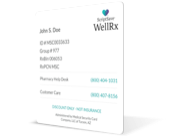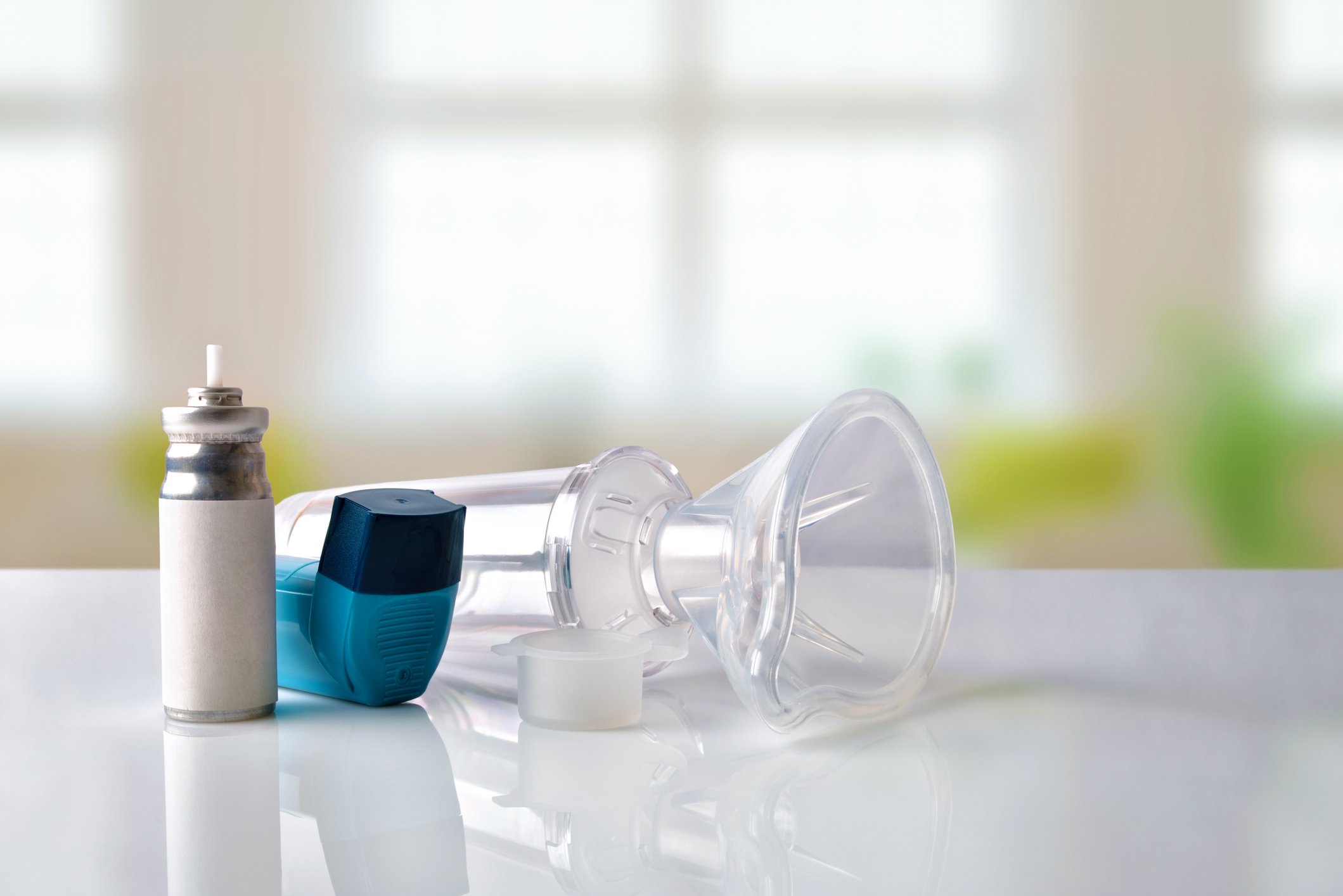Copyright 2025
Medical Security Card Company, LLC
All Rights Reserved
We take the privacy of your personal information seriously. By signing up I agree to WellRx's terms of use and privacy policy.
By Karen Eisenbraun, CNC
June 23, 2020
Menopause is a natural transition that occurs when a woman’s menstrual periods come to an end. Menopause typically occurs between the ages of 45 and 50, but the symptoms and changes that occur as a result can last for years.
In addition to uncomfortable symptoms, menopause can also increase the risk of certain diseases, including heart disease, high blood pressure, and high cholesterol.
Eating a healthy diet can not only help improve menopause symptoms but also reduce your risk of disease during menopause and in your later years. Continue reading to learn how what you eat can affect your health during this time.
As women approach menopause, their estrogen levels begin to decline, causing hormonal imbalances that can lead to a multitude of symptoms, such as hot flashes and difficulty sleeping.
This drop in estrogen can negatively affect the body’s metabolism, leading to weight gain. It can also reduce bone density, which can increase the risk of fractures.
Eating certain foods—and avoiding others—can help counteract the negative effects of these hormonal changes.
Evidence shows that eating certain foods can help strengthen your bones, improve hot flashes, and reduce your risk of other health conditions, such as heart disease.
Calcium—along with other vitamins and minerals, such as potassium, magnesium, vitamin D, and vitamin K—is essential for healthy bones.
Drinking milk is often recommended as the best way to optimize bone health; however, some studies actually link milk consumption to an increased risk of bone fracture. Milk and other dairy products may induce inflammation, which is associated with bone loss.
Rather than relying on dairy products for your calcium, eat plenty of leafy green vegetables and legumes, which are loaded with calcium and other nutrients the body can readily absorb. Broccoli, kale, Swiss chard, Brussels sprouts, and beans are excellent sources of calcium and magnesium.
The body also requires vitamin D to absorb calcium. As much as 75 percent of adults and teens in the United States are deficient in vitamin D. People of color, the elderly, obese individuals, and smokers are at a higher risk of vitamin D deficiency.
The body produces vitamin D when the skin is exposed to sunlight. If you aren’t able to get enough vitamin D from sun exposure, consider taking a supplement.
Fat is an essential nutrient that is often misunderstood. Healthy sources of fat are needed to help your body absorb nutrients, keep your organs functioning optimally, and protect your heart health.
Healthy fats may also improve symptoms related to menopause, such as hot flashes and high cholesterol.
Ideally, every meal should include a source of healthy fat, such as olives or olive oil, avocado, flax seeds, chia seeds, nuts, or fish. You may also want to consider taking an omega-3 supplement.
No matter what your stage of life, fruits and vegetables are important for good health. Fruits and vegetables contain antioxidants that help prevent cellular damage, along with other important nutrients.
In one study of postmenopausal women, those who ate more fruit, vegetables, fiber, and soy experienced a 19% reduction in hot flashes and were more likely to lose weight than participants in a control group.
Aim to include nonstarchy fruits and vegetables in every meal. Dark berries and cruciferous vegetables, such as broccoli and cauliflower, may be especially beneficial to women experiencing menopause.
Protein is essential for building muscle and tissue. Lower levels of estrogen during menopause are linked to decreased muscle mass, so women experiencing menopause may benefit from increasing their protein intake. Strength training, such as weight-lifting exercises, can also help strengthen bones and muscles.
Foods high in protein include eggs, fish, meat, and legumes. Aim for quality sources, such as grass-fed beef, which is also high in omega-3 fatty acids. You can also add protein powder or collagen peptides to smoothies.
Eliminating or reducing your intake of certain foods can also help improve symptoms of menopause.
Consumption of sugar and processed carbs is linked to high blood sugar, insulin resistance, weight gain, and increased risk of heart disease. Studies suggest that women experiencing insulin resistance are more likely to suffer from hot flashes during menopause.
To reduce your risk of insulin resistance and hot flashes, avoid foods with added sugars, as well as processed carbs, such as pastries, baked goods, pasta, and white bread. Choose foods that fall lower on the glycemic index; they have less of an impact on blood sugar. For example, choose spaghetti squash or zucchini noodles instead of grain-based pasta. Use natural sweeteners such as stevia or erythritol instead of sugar.
Some studies suggest that caffeine and alcohol can increase the severity of hot flashes. Caffeine and alcohol also disrupt sleep, and many women going through menopause experience difficulty sleeping. If you’re experiencing sleep problems and hot flashes, try cutting back on caffeine and alcohol intake, especially in the late afternoon and evening.
Even if your diet has been less than healthy in the past, it’s never too late to make positive changes that can impact your health for the better. Start by making one small change you can stick with, then introduce additional changes one at a time. Soon you’ll be feeling your best and will no longer feel like the uncomfortable effects of menopause are controlling your life.
Karen Eisenbraun is a Certified Holistic Nutrition Consultant. She holds an English degree from Knox College and has written extensively about topics related to holistic health, clinical nutrition, and weight management.
References:
https://www.franciscanhealth.org/news-and-events/news/link-menopause-heart-disease-women
https://health.clevelandclinic.org/can-drinking-too-much-milk-make-your-bones-more-brittle/
https://www.scientificamerican.com/article/vitamin-d-deficiency-united-states/
https://pubmed.ncbi.nlm.nih.gov/22851488/
https://www.scirp.org/journal/PaperInformation.aspx?PaperID=261

For your convenience, use the ScriptSave® WellRx mobile app. Now savings are well in hand, right at the pharmacy counter. Save on your family's prescription medicines.
Learn More
Your choice. Get a ScriptSave WellRx Savings Card. Or Download the free mobile app from the App Store or Google Play Store
Get A Card
ScriptSave WellRx Grocery Guidance leverages leading-edge nutritional data science to help you know which food products on your grocery store shelf are truly good for YOU.
Healthy Foods For YouTags:

July 30, 2025

July 23, 2025

July 16, 2025
You need to log into the site to use this feature
This feature requires registration. Sign up or log in to your free WellRx account to gain access to this and other tools to help make managing your medications and wellness easier.
Benefits Include:
 Store & manage your medication list
Store & manage your medication list
 Medication pricing updates
Medication pricing updates
 Medication information
Medication information
 Pill & refill reminders
Pill & refill reminders
 Medication journal & mood log
Medication journal & mood log
This feature requires registration. Sign up or log in to your free WellRx account to gain access to this and other tools to help make managing your medications and wellness easier.
Benefits Include:
 Store & manage your medication list
Store & manage your medication list
 Medication pricing updates
Medication pricing updates
 Medication information
Medication information
 Pill & refill reminders
Pill & refill reminders
 Medication journal & mood log
Medication journal & mood log
You will be redirected to your program in 5 seconds.
Our Terms and Conditions and Privacy Policy have recently been updated.
By declining you will be logged out of your account